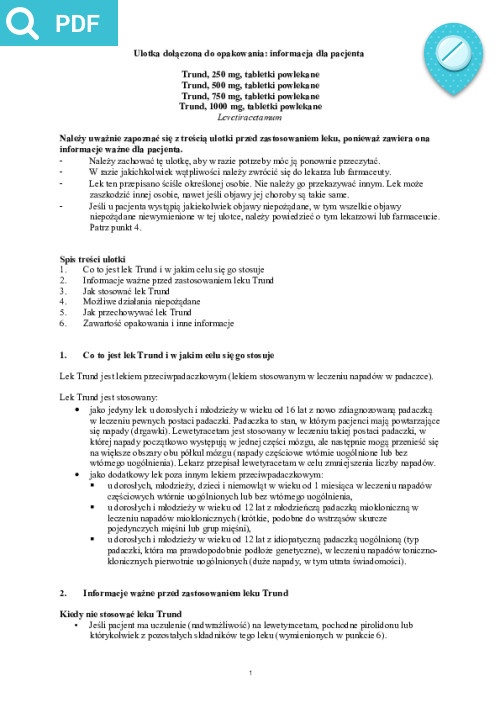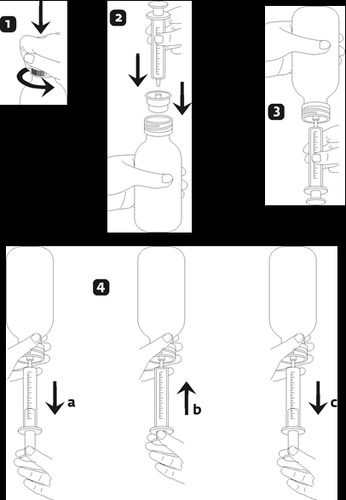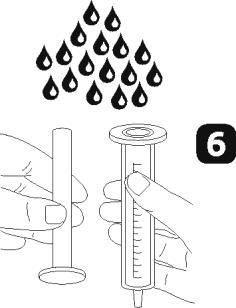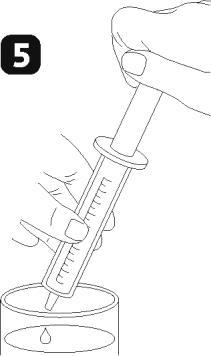

Trund

Ask a doctor about a prescription for Trund

How to use Trund
Package Leaflet: Information for the Patient
Trund, 100 mg/ml, Oral Solution
Levetiracetam
Read the package leaflet carefully before taking the medicine or giving it to a child, as it contains important information for the patient.
- Keep this leaflet, you may need to read it again.
- If you have any further questions, ask your doctor or pharmacist.
- This medicine has been prescribed for you only. Do not pass it on to others. It may harm them, even if their symptoms are the same as yours.
- If you experience any side effects, including any not listed in this leaflet, please tell your doctor or pharmacist. See section 4.
Contents of the Package Leaflet
- 1. What Trund is and what it is used for
- 2. Important information before taking Trund
- 3. How to take Trund
- 4. Possible side effects
- 5. How to store Trund
- 6. Contents of the pack and other information
1. What Trund is and what it is used for
Trund is an antiepileptic medicine (used to treat seizures in epilepsy).
Trund is used:
- as monotherapy (using only this medicine) in adults and adolescents from 16 years of age with newly diagnosed epilepsy, for the treatment of certain types of epilepsy. Epilepsy is a condition where patients have repeated seizures (fits). Levetiracetam is used for the treatment of a type of epilepsy where the seizures initially occur in one part of the brain, but can then spread to larger areas of both hemispheres of the brain (partial onset seizures, with or without secondary generalisation). The doctor has prescribed levetiracetam to reduce the number of seizures.
- as an add-on therapy (in addition to other antiepileptic medicines):
- in adults, adolescents, children, and infants from 1 month of age for the treatment of partial onset seizures, with or without secondary generalisation,
- in adults and adolescents from 12 years of age with juvenile myoclonic epilepsy for the treatment of myoclonic seizures (short, shock-like muscle contractions),
- in adults and adolescents from 12 years of age with idiopathic generalised epilepsy (a type of epilepsy that is likely to have a genetic basis) for the treatment of primary generalised tonic-clonic seizures (large seizures, including loss of consciousness).
2. Important information before taking Trund
When not to take Trund
- If you are allergic to levetiracetam, pyrrolidine derivatives, or any of the other ingredients of this medicine (listed in section 6).
Warnings and precautions
Before taking Trund, discuss with your doctor:
- If kidney disease has been diagnosed in the patient, Trund should be used as directed by the doctor. The doctor may decide to adjust the dose.
- If any slowing of growth or unexpected early puberty has been observed in the child, contact the doctor.
- In some patients taking antiepileptic medicines, such as Trund, thoughts of self-harm or suicidal thoughts have occurred. If symptoms of depression and/or suicidal thoughts occur, contact the doctor.
- If there is a history of irregular heart rhythm (visible on an electrocardiogram) in the patient's family or previously in the patient, or if the patient has a disease and/or is taking medicines that cause a tendency to irregular heart rhythm or electrolyte imbalance. If any of the following side effects worsen or persist for more than a few days, inform the doctor or pharmacist:
- Unusual thoughts, irritability, or more aggressive reactions than usual, or significant changes in mood or behaviour noticed by the patient, or their family and friends.
- Worsening of epilepsy
- In rare cases, seizures may worsen or occur more frequently, especially in the first month after starting treatment or increasing the dose. In a very rare form of epilepsy with an early onset (epilepsy associated with mutations in the SCN8A gene) causing various types of seizures and loss of skills, the patient may notice that seizures continue or worsen during treatment.
If any of these new symptoms occur while taking Trund, contact the doctor as soon as possible.
Children and adolescents
Trund must not be used as monotherapy in children and adolescents under 16 years of age.
Trund and other medicines
Tell your doctor or pharmacist about all medicines you are taking, have recently taken, or might take.
Do not take macrogol (a medicine used for constipation) 1 hour before and 1 hour after taking levetiracetam, as it may reduce the effectiveness of levetiracetam.
Pregnancy and breastfeeding
If you are pregnant or breastfeeding, think you may be pregnant, or are planning to have a baby, ask your doctor for advice before taking this medicine.
Levetiracetam can be used during pregnancy only if your doctor considers it essential. Do not stop treatment without discussing it with your doctor.
The risk of birth defects cannot be completely ruled out.
Breastfeeding is not recommended during treatment.
Driving and using machines
Trund may affect your ability to drive or operate tools or machines, as it may cause drowsiness. This is more likely at the start of treatment or when the dose is increased. Do not drive or operate machinery until you know how the medicine affects you.
Trund contains maltitol liquid and methyl parahydroxybenzoate
Trund oral solution contains maltitol liquid (E965). If you have previously been diagnosed with intolerance to some sugars, contact your doctor before taking this medicine.
Trund oral solution contains methyl parahydroxybenzoate (E218), which may cause allergic reactions (possible late reactions).
3. How to take Trund
Always take this medicine exactly as your doctor or pharmacist has told you. If you are not sure, check with your doctor or pharmacist.
Trund must be taken twice daily, in the morning and evening, at approximately the same time each day.
The oral solution should be taken as directed by the doctor.
Monotherapy (from 16 years)
Adults (≥18 years) and adolescents (from 16 years):
Measure the appropriate dose using the 10 ml syringe provided with the packaging for patients from 4 years of age.
Recommended dose: Trund is taken twice daily, in two divided doses, each dose is between 5 ml (500 mg) and 15 ml (1500 mg).
If the patient is taking Trund for the first time, the doctor will initially prescribe a lower dosefor 2 weeks, and then the lowest daily dose.
Adjunctive therapy
Dose in adults and adolescents (from 12 to 17 years):
Measure the appropriate dose using the 10 ml syringe provided with the packaging for patients from 4 years of age.
Recommended dose: Trund is taken twice daily, in two divided doses, each dose is between 5 ml (500 mg) and 15 ml (1500 mg).
Dose in children from 6 months:
The doctor will prescribe the most suitable form of Trund, depending on the age, weight, and dose.
For children from 6 months to 4 years, measure the appropriate dose using the 3 ml syringe provided with the packaging.
For children over 4 years, measure the appropriate dose using the 10 ml syringe provided with the packaging.
Recommended dose: Trund is taken twice daily, in two divided doses, each dose is between 0.1 ml (10 mg) and 0.3 ml (30 mg) per kilogram of the child's body weight (see the table below for examples of doses).
Dose in children from 6 months:
Dose in infants (from 1 month to less than 6 months):
For infants from 1 month to less than 6 months, measure the appropriate dose using the 1 mlsyringe provided with the packaging.
Recommended dose: Trund is taken twice daily, in two divided doses, each dose is between 0.07 ml (7 mg) and 0.21 ml (21 mg) per kilogram of the infant's body weight (see the table below for examples of doses).
Dose in infants (from 1 month to less than 6 months):
| Body weight | Initial dose: 0.1 ml/kg body weight twice daily | Maximum dose: 0.3 ml/kg body weight twice daily |
| 6 kg | 0.6 ml twice daily | 1.8 ml twice daily |
| 8 kg | 0.8 ml twice daily | 2.4 ml twice daily |
| 10 kg | 1 ml twice daily | 3 ml twice daily |
| 15 kg | 1.5 ml twice daily | 4.5 ml twice daily |
| 20 kg | 2 ml twice daily | 6 ml twice daily |
| 25 kg | 2.5 ml twice daily | 7.5 ml twice daily |
| from 50 kg | 5 ml twice daily | 15 ml twice daily |
| Body weight | Initial dose: 0.07 ml/kg body weight twice daily | Maximum dose: 0.21 ml/kg body weight twice daily |
| 4 kg | 0.3 ml twice daily | 0.85 ml twice daily |
| 5 kg | 0.35 ml twice daily | 1.05 ml twice daily |
| 6 kg | 0.45 ml twice daily | 1.25 ml twice daily |
| 7 kg | 0.5 ml twice daily | 1.5 ml twice daily |
Method of administration:
After measuring the appropriate dose using the correct syringe, Trund oral solution can be diluted in a glass of water or a baby bottle. Trund can be taken with or without food. After oral administration, levetiracetam may leave a bitter taste.
Instructions for preparing the medicine for use:
- Open the bottle: press the cap and turn it in the opposite direction of the arrow (figure 1).
- Take the syringe and push it into the connector hole (figure 2). Turn the bottle upside down (figure 3).
- Draw a small amount of solution into the syringe by pulling the plunger down (figure 4a), then, by pressing the plunger, remove air bubbles from the syringe (figure 4b). Pull the plunger down to the mark on the syringe corresponding to the dose prescribed by the doctor in milliliters (ml) (figure 4c).
- Turn the bottle right side up. Remove the syringe from the connector.
- Press the plunger to empty the syringe into a glass of water or a baby bottle (figure 5).
- Drink the entire contents of the glass/baby bottle.
- Close the plastic bottle with the cap.
- Rinse the syringe with water (figure 6).

Duration of treatment:


- Trund is used for long-term treatment. Continue treatment with Trund for as long as your doctor tells you.
- Do not stop treatment without consulting your doctor, as this may increase the frequency of seizures.
Overdose of Trund
Possible side effects of overdose of Trund include drowsiness, agitation, aggression, decreased alertness, respiratory depression, and coma.
If you have taken more Trund than you should, contact your doctor immediately. The doctor will recommend the best possible treatment for overdose.
Missed dose of Trund
Contact your doctor if you have missed one or more doses of Trund.
Do not take a double dose to make up for a missed dose.
Stopping Trund treatment
If Trund treatment is to be stopped, the medicine should be gradually discontinued to avoid increasing the frequency of epileptic seizures. If the doctor decides to stop treatment, they will provide information on how to gradually discontinue Trund.
If you have any further questions about taking this medicine, ask your doctor or pharmacist.
4. Possible side effects
Like all medicines, Trund can cause side effects, although not everybody gets them.
Immediately tell your doctor or contact your nearest hospital emergency department if you experience:
- weakness, dizziness, or difficulty breathing, as these symptoms may indicate a severe allergic reaction (anaphylaxis)
- swelling of the face, lips, tongue, and throat (angioedema)
- flu-like symptoms and rash on the face and then on the rest of the body, high temperature, increased liver enzyme activity in blood tests, increased number of certain white blood cells (eosinophilia), and swollen lymph nodes (drug rash with eosinophilia and systemic symptoms - DRESS syndrome)
- symptoms such as decreased urine output, fatigue, nausea, vomiting, confusion, and swelling of the feet, ankles, or legs, as this may be a sign of sudden worsening of kidney function
- a skin rash that may cause blisters and looks like small targets (dark spot surrounded by a lighter area and a dark ring around) (erythema multiforme)
- a widespread rash with blisters and peeling skin, mainly on the mouth, nose, eyes, and genitals (Stevens-Johnson syndrome)
- a more severe form of skin rash causing skin peeling over more than 30% of the body surface (toxic epidermal necrolysis)
- signs of serious mental changes or observation of disorientation, drowsiness, memory loss (amnesia), memory disturbances (forgetfulness), behavioural disturbances, or other neurological symptoms, including involuntary or uncontrolled movements. These may be symptoms of encephalopathy.
The most common side effects are: nasal congestion, drowsiness, headache, fatigue, and dizziness. At the start of treatment or when the dose is increased, side effects such as drowsiness, fatigue, or dizziness may occur more frequently. The intensity of these side effects should decrease over time.
Very common:may affect more than 1 in 10 people
- nasal congestion
- drowsiness, headaches
Common:may affect up to 1 in 10 people
- loss of appetite (anorexia)
- depression, feelings of hostility or aggression, anxiety, insomnia, nervousness, or irritability
- seizures, balance disturbances, dizziness (feeling of swaying), lethargy (lack of energy and enthusiasm), shivering (involuntary shaking)
- vertigo (dizziness of inner ear origin)
- cough
- abdominal pain, diarrhoea, dyspepsia (indigestion), vomiting, nausea
- rash
- asthenia/fatigue (tiredness)
Uncommon:may affect up to 1 in 100 people
- decreased platelet count, decreased white blood cell count
- weight loss, weight gain
- suicidal attempts and suicidal thoughts, mental disorders, behavioural disturbances, hallucinations, anger, disorientation, panic attacks, emotional instability/mood swings, restlessness
- amnesia (memory loss), memory disturbances (forgetfulness), coordination/balance disturbances (ataxia), paraesthesia (tingling), attention disturbances
- diplopia (double vision), blurred vision
- increased/liver enzyme abnormalities
- hair loss, rash, itching
- muscle weakness, muscle pain
- injuries
Rare:may affect up to 1 in 1,000 people
- infections
- decreased count of all blood cell types
- severe allergic reactions (drug rash with eosinophilia and systemic symptoms - DRESS syndrome, anaphylactic reaction [severe and serious allergic reaction], angioedema [swelling of the face, lips, tongue, and throat])
- decreased sodium levels in the blood
- suicides, personality disorders (behavioural disturbances), thought disorders (slow thinking, lack of concentration)
- delirium
- encephalopathy (detailed description of symptoms can be found in the subsection "Tell your doctor immediately")
- seizures may worsen or occur more frequently
- involuntary muscle contractions in the head, trunk, and limbs, difficulty controlling movements, hyperkinesia (overactivity)
- change in heart rhythm (electrocardiogram)
- pancreatitis
- liver function disorders, hepatitis
- sudden worsening of kidney function
- a skin rash that may cause blisters and looks like small targets (dark spot surrounded by a lighter area and a dark ring around) (erythema multiforme), a widespread rash with blisters and peeling skin, mainly on the mouth, nose, eyes, and genitals (Stevens-Johnson syndrome), and a more severe form of skin rash causing skin peeling over more than 30% of the body surface (toxic epidermal necrolysis).
- rhabdomyolysis (breakdown of striated muscle) and associated increased creatine phosphokinase activity in the blood. The occurrence is significantly more frequent in Japanese patients compared to other patients (non-Japanese).
- stuttering or difficulty walking.
- occurring simultaneously: fever, muscle stiffness, unstable blood pressure and heart rate, disorientation, low level of consciousness (these may be symptoms of a disorder called malignant neuroleptic syndrome). The frequency of occurrence is significantly higher in Japanese patients compared to non-Japanese patients.
Very rare:may affect up to 1 in 10,000 people
- repetitive unwanted thoughts or feelings, or an internal compulsion to constantly perform the same action (obsessive-compulsive disorder).
Reporting side effects
If you experience any side effects, including any not listed in this leaflet, please tell your doctor or pharmacist. Side effects can be reported directly to the Department of Drug Monitoring of the Office for Registration of Medicinal Products, Medical Devices, and Biocidal Products
Al. Jerozolimskie 181C, 02-222 Warsaw; tel.: + 48 22 49 21 301; fax: + 48 22 49 21 309
Website: https://smz.ezdrowie.gov.pl
Side effects can also be reported to the marketing authorisation holder.
By reporting side effects, you can help provide more information on the safety of this medicine.
5. How to store Trund
Keep this medicine out of the sight and reach of children.
Do not use this medicine after the expiry date which is stated on the carton after “EXP” and on the bottle label after “EXP”. The expiry date refers to the last day of that month.
Do not use for more than 7 months after first opening the bottle.
Store in the original package to protect from light.
Medicines should not be disposed of via wastewater or household waste. Ask your pharmacist how to dispose of medicines no longer required. This will help protect the environment.
6. Contents of the pack and other information
What Trund contains
- The active substance is levetiracetam.
- The other ingredients are: sodium citrate, anhydrous citric acid, methyl parahydroxybenzoate (E218), glycerol, potassium acesulfame (E950), maltitol liquid (E965), raspberry flavour, purified water.
What Trund looks like and contents of the pack
Trund 100 mg/ml oral solution is a colourless liquid.
A glass bottle containing 300 ml of solution (for children from 4 years of age, adolescents, and adults) with a child-resistant closure, an oral syringe of 10 ml capacity (with graduations every 0.25 ml) and a syringe connector, in a carton box.
Marketing authorisation holder:
neuraxpharm Arzneimittel GmbH
Elisabeth-Selbert Str. 23
40764 Langenfeld
Germany
Manufacturer:
Glenmark Pharmaceuticals s.r.o.
Fibichova 143
566 17 Vysoké Mýto
Czech Republic
Remedica Ltd
Aharnon str.
Limassol Industrial Estate
P.O. Box 51706
CY-3056 Limassol
Cyprus
Galenica Pharmaceutical Industry S.A.
3rd Km Old National Road Chalkida Athens
Chalcis, 341 00,
Greece
For further information about this medicine, please contact the local representative of the marketing authorisation holder:
Neuraxpharm Polska Sp. z o.o.
ul. Poleczki 35
02-822 Warsaw
[email protected]
This medicine is authorised in the Member States of the European Economic Area under the following names:
Netherlands
TRUND 100mg/ml, Drank
Poland
Trund
Date of last revision of the leaflet:
- Country of registration
- Active substance
- Prescription requiredYes
- ImporterGalenica Pharmaceutical Industry S.A. Glenmark Pharmaceuticals s.r.o. Remedica Ltd
- This information is for reference only and does not constitute medical advice. Always consult a licensed doctor before taking any medication. Oladoctor is not responsible for medical decisions based on this content.
- Alternatives to TrundDosage form: Tablets, 250 mgActive substance: levetiracetamPrescription requiredDosage form: Tablets, 500 mgActive substance: levetiracetamPrescription requiredDosage form: Tablets, 750 mgActive substance: levetiracetamPrescription required
Alternatives to Trund in other countries
The best alternatives with the same active ingredient and therapeutic effect.
Alternative to Trund in Spain
Alternative to Trund in Ukraine
Online doctors for Trund
Discuss dosage, side effects, interactions, contraindications, and prescription renewal for Trund – subject to medical assessment and local rules.







